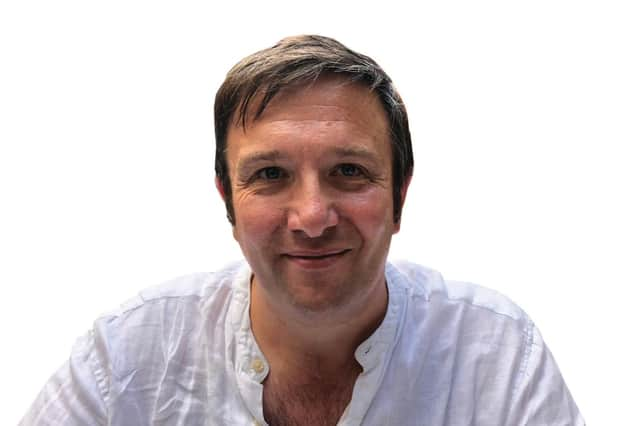Shaun Milne: Producing sustainable political solutions or just more hot air?


The big energy companies, banks, sponsors, local authorities, fringe groups and internationally renowned names are working at pace behind the scenes on presentations and big announcements held back just long enough to be shared in front of the world’s media.
Scotland too – quite rightly – wants to be regarded as a global leader, especially in areas of sustainability, biodiversity, and economic resilience. Taking its place and sharing the international stage with its UK hosts, it should have much to support this.
Advertisement
Hide AdAdvertisement
Hide AdAfter all, Scotland was the first government in the world to declare a climate emergency even if it didn’t go as far as stating a nature emergency too.
There is pending announcement on the much-anticipated ScotWind leasing auction, which experts predict will boost Scotland’s place as a renewables superpower, with skills to export to the world as part of a global energy Just Transition.
And there is the recent report by Scotland’s Climate Assembly with 81 urgent recommendations, covering everything from heating and transport to education and training, examined in depth by our most recent Sustainable Scotland podcast, out this week.
Every party, every politician, and every stakeholder has been vying to raise their eco credentials and persuade people that they have the answers, they are doing their bit, that their opinion counts.
Most recently, the SNP has looked to the example of New Zealand and invited the Scottish Greens into their tent to influence and lead policy, a move that could go a long way to further boosting their environmental credentials in the eyes of the world.
Predictably this has been seized upon for what it means for the constitutional debate. But what has been astonishing is the volume of vitriol dripping from self-entitled, egotistical, privileged, generally ageing white men against the fledgling agreement.
If it is any indicator of the disruptive influence it is to have on politics, it’s going to be quite the ride, and will bring into sharp focus those who really are for sustainable solutions and those who expel only hot air.
Some of the criticisms now levelled against the Scottish Greens are tiringly predicable – extremists, cranks, dangerous and other language – some of which you could argue borders on hate speech.
Advertisement
Hide AdAdvertisement
Hide AdSo too the misogynistic drivel directed at Nicola Sturgeon and Scottish Greens co-leader Lorna Slater, again driven chiefly by men frantically trying to hold onto some semblance of relevance in a modern political world where mansplaining and sexism are becoming as outdated as their tired old tropes.
Such angry, pro-union, pro-business-at-any-cost rhetoric should be beneath the authors and, frankly, demeans not just those platforms that peddle their views, but Scottish politics itself.
Because if you move past the battlelines, if you can focus away from the IndyRef red button for a moment, and drill into the document, there is much all parties should be working on together.
Oil and gas and a Just Transition is perhaps the most difficult, given how closely linked it is with the constitutional question and the economy. But surely all mustaccept that there has to be a Marshall Plan-like drive towards making sure that renewable expertise and jobs become the North Sea rush of the next century?
Given the impacts of obesity, pollution, poverty and more, how can any politician of any hue disagree with the need for more active travel? Is anyone really against planting tens of thousands of new trees?
Politics is not just about power. It is not only about independence. Nor is it whatever your lobbyist friends ask you to say.
It is about responsibility to the people and the generations to come.
On the SNP-Scottish Greens deal debate, agree, disagree – rage even. But the world is watching, so is the next generation. Things change. Alternatives matter. As the clock ticks on climate change, we should be mindful of that above all else.
- Shaun Milne hosts the Sustainable Scotland podcast and chief executive of Skog Media Associates